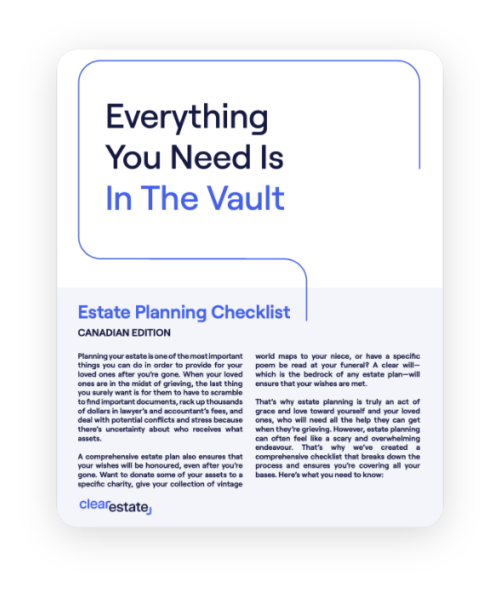Estate Planning
Nov 29, 2024
7 Critical Trust Fund Mistakes Parents Must Avoid in 2025
Setting up a trust fund? Learn the biggest mistake parents make and ensure your child's financial security with expert guidance.
The First Dealings Exemption in Ontario can help qualified real estate properties skip probate. Here’s what you need to know.


Going through probate can be an arduous process that requires a lot of time and patience. In addition, you’ll be facing quite a number of fees that can eat away at the beneficiaries’ inheritance.
As such, any strategies for minimizing or avoiding probate altogether are always welcome tools in the arsenal of an estate executor facing an estate settlement journey. Enter: The First Dealings Exemption.
Let’s go back in time a little bit in order to answer that. Before the onset of the digital age, land titles were mostly registered in the Land Registry System (LRS). Beginning in the 1980s, titles began to be transferred from the LRS to the Land Titles System (LTS), which is an electronic system. Since then, most titles now live in the LTS, and have changed hands a couple of times since then.
However, there is still the odd property whose title remains on the LRS, or who moved to the LTS but was never sold or transferred since then. Basically, any property that’s been in the recently deceased’s hands for over 40 years and is either still registered in the LRS or hasn’t had any subsequent dealings (referring to sales or transfers of titles) since moving to the LTS. That’s why this policy is considered an exemption for properties who will have their “first dealing” after their owner passes.
"Any property that has been owned by the recently deceased for over 40 years and is either still registered in the LRS or hasn’t had any sales or transfers of titles since moving to the LTS is subject to the first dealings exemption"
One of the major benefits of the First Dealings Exemption is that it allows qualified real estate to skip probate. Instead, a property that falls under the First Dealings Exemption can be sold and/or transferred without probate.
However, there are some requirements alongside the property’s title for a First Dealings Exemption to kick in. In addition for the property in question to never have had a dealing before, the estate executor must prove that:
There is a valid will;
If there are other assets of the estate that need to go through probate, then the property also needs to be included in the probated estate, and eventually pay probate fees on the value of the property.
If a situation occurs where a First Dealings Exemption is applicable but there are still assets in the estate that require going through probate, then some good estate planning in advance can help avoid unnecessary fees.
Some strategies include setting up multiple wills, with one will covering the real estate that qualifies for the First Dealings Exemption, and another covering all assets that require going through probate. Another strategy is setting up your estate in a way that potentially allows you to skip probate altogether.
Want to learn more? Get in touch with our experts at ClearEstate for a free consultation and find out how we can help.
 Secure Your Legacy
Secure Your Legacy
Get your free 12-step Estate Planning checklist now. 89% of readers complete their estate plan within 3 months of using our guide.
Instantly Access Now